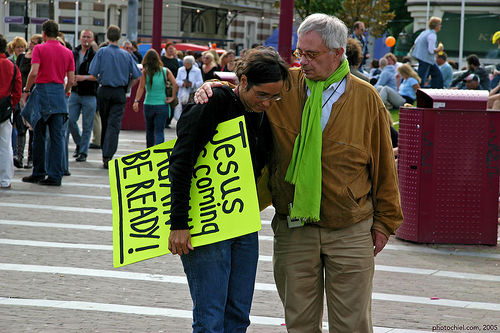You probably have already met people (maybe even yourself) who were in some point in their lives disappointed with God. This disappointment may cause them to feel unable to fully trust in God and sometimes even cause them to turn away from Him. But why does this disappointment occur?

Photo credit: Photochiel (Creative Commons)
First let’s check what the word “disappoint” mean:
to disappoint: to fail to meet the expectation or hope of (according to the Merriam-Webster online dictionary)
The keyword here is expectation. The person expects something from God, and when it doesn’t happen as they expect, they get disappointed with God.
A person can get a wrong expectation from God in several ways. Most commonly, it is due to the lack of knowledge of the Word of God from the Bible, which also includes incorrect interpretations.







